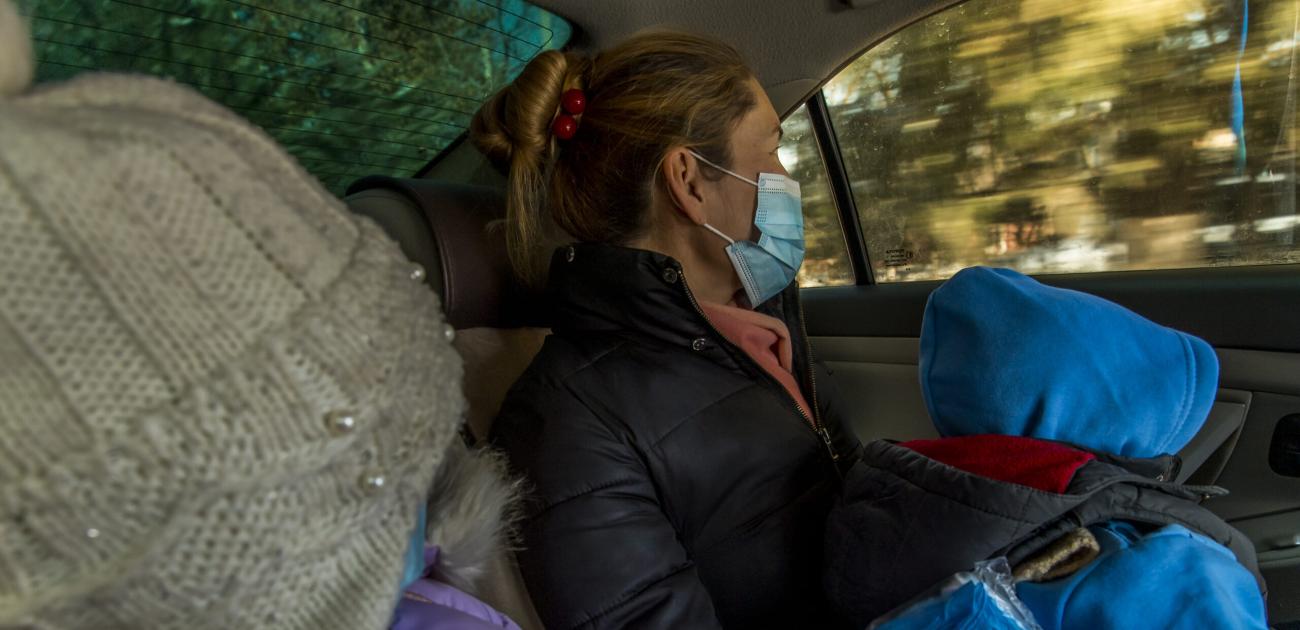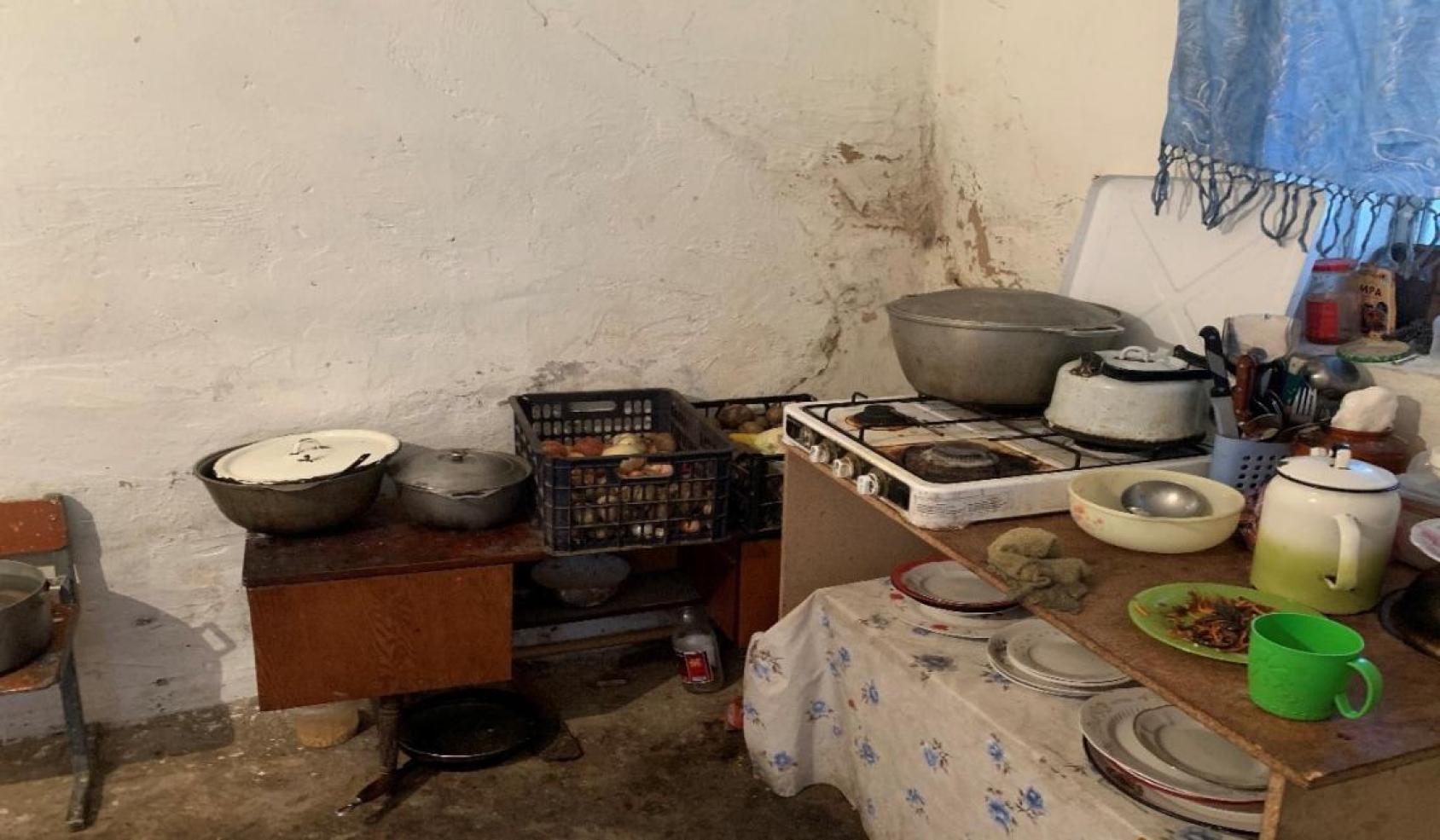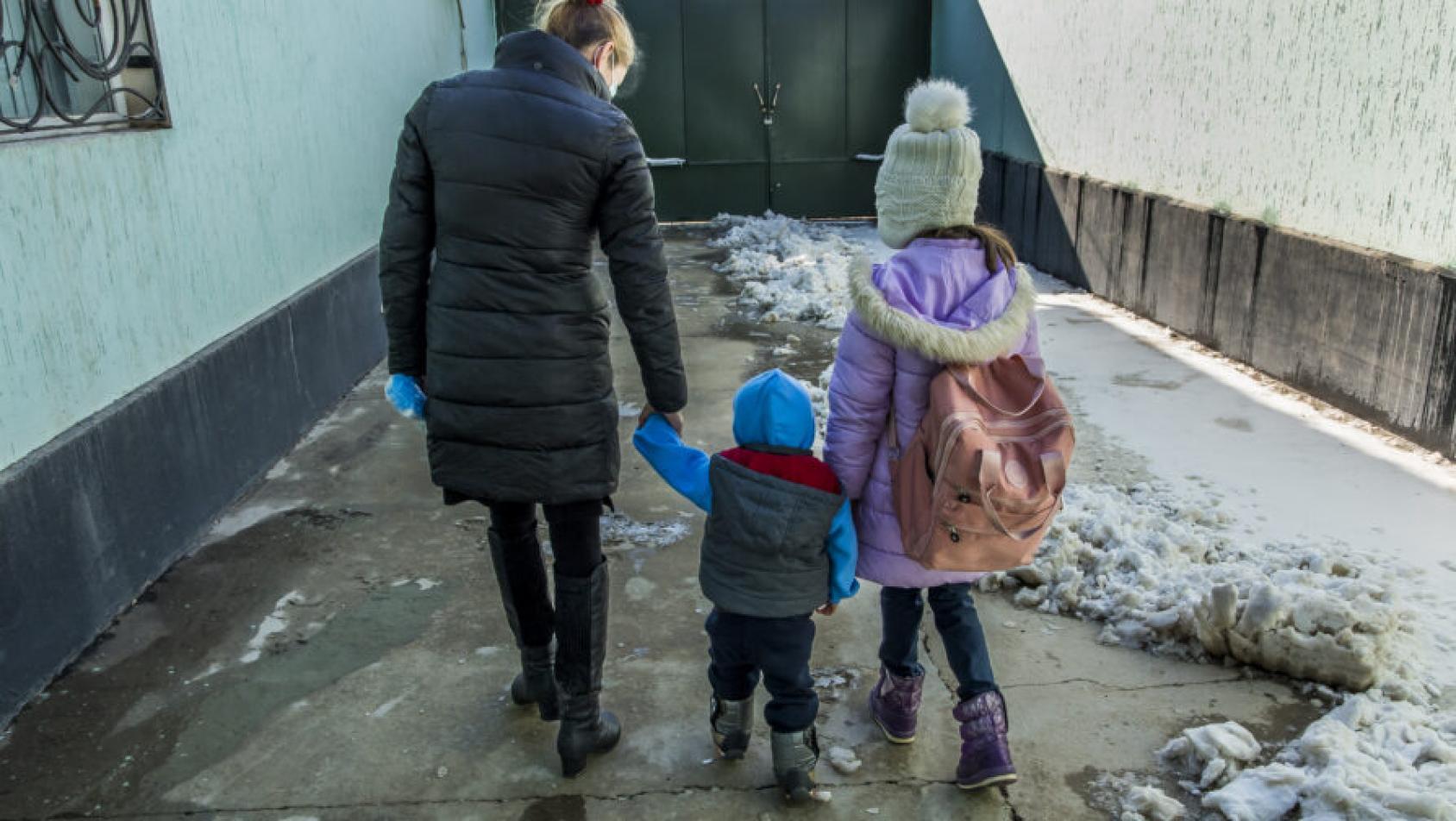Kazakhstan: Lifting shadows of statelessness

Several years ago, Zukhra* and her eldest son illegally crossed the border between Uzbekistan and Kazakhstan together with a dozen of Lyuli – Romani people living in Central Asia. According to her, their whole group was allowed in with just one passport.
When she arrived in Kazakhstan, she later gave birth to another child – a daughter. Zukhra’s family, like other vulnerable people migrating through Central Asia fell into hard times and were initially forced to beg on the street in order to survive. Several years later, Zukhra met a new partner and had two more children. Living as an undocumented stateless person, she was unable to register their births, leaving them without a nationality. The family now lives below the poverty line, and the children have grown up in unsanitary conditions and in a house without gas or water supply.

Legal limbo
Roza*, an ethnic Kazakh who was born in Uzbekistan, moved to Kazakhstan in 2011 in search of work, ending up marrying and settling there. Like thousands of ethnic Kazakhs who returned to their historical homeland in the years following Kazakhstan’s independence, Roza sought to obtain legal status there. Believing that this was a necessary step to initiate the process, she renounced her Uzbek citizenship. She ended up losing her citizenship before obtaining a new one, becoming an undocumented stateless person, trapped in the legal limbo.
Living as an undocumented stateless person, Roza was unable to officially register her marriage to her husband, a Turkish national, or register her children. The family’s unpredictable and meager income came from the odd jobs that Roza and her husband struggled to find.
Lacking identity documents, Roza’s daughter was also unable to formally enroll in the local school. “There is no evidence that she is a student in the school system. It’s as if she does not exist,” said Roza.
Statelessness in Kazakhstan
Over 100,000 people are known to be stateless in Central Asia. The majority of them are former citizens of the Union of Soviet Socialist Republics who have not yet acquired or confirmed the citizenship of the newly independent States.
There are nearly 8,000 people in Kazakhstan reported to be stateless or at risk of statelessness, but the real numbers may be even higher. While documented stateless people have a certificate from the government enabling them to stay in the country, and access work, public services, and healthcare, the undocumented stateless persons, like Zukhra and Roza, are among the most vulnerable groups as they have no legal status and do not have access to most socio-economic rights and are and are “invisible” to the authorities – it is like they do not exist.
In Kazakhstan, UNICEF and UNHCR, together with the UN Country Team, and partners including the European Union, have been assisting the Kazakhstani authorities and social services in identifying and documenting persons with undetermined citizenship.
UNICEF’s joint programme with the European Union has helped promote greater dialogue between the governments of Central Asian countries and independent human rights organizations. According to UNICEF Representative in Kazakhstan, Arthur van Diesen, this has been a key step in helping to strengthen systems for exchanging information between countries to track the whereabouts of family members and their reunification, stateless children, and monitoring the status of migrant children.
“During migration processes, the rights of every child must be protected. It is important to remember that migrant children are, first of all, children.”

“She has a family here. We hope that after receiving the status of a stateless person, Zukhra will apply for citizenship of Kazakhstan. And then we will be able to assist her with the registration,” says Raushan Khudayshukurova, a representative of ‘Sana Sezim’, an NGO and Legal Center for Women's Initiatives, which works closely with UNICEF and UNHCR to support stateless children through migration processes.
'Sana Sezim' also helped Roza apply for birth certificates for all her children, which she received in August 2022. She had also received her identity documents recognizing her as a stateless person under Kazakh law, enabling her to access medical services, open her own bank account, and moving towards gaining a nationality.
“I was in shock,” she said, recalling that moment. “I realized that finally I have documents… Now I am a full-fledged person, I can speak up. I can defend myself and live without fear for myself and my children.”
*names have been changed to protect identities
The story is based on articles published by the UN in Kazakhstan and UNICEF in Europe and Central Asia.
To learn more about the UN's work in Kazakhstan, please visit: kazakhstan.un.org.





































